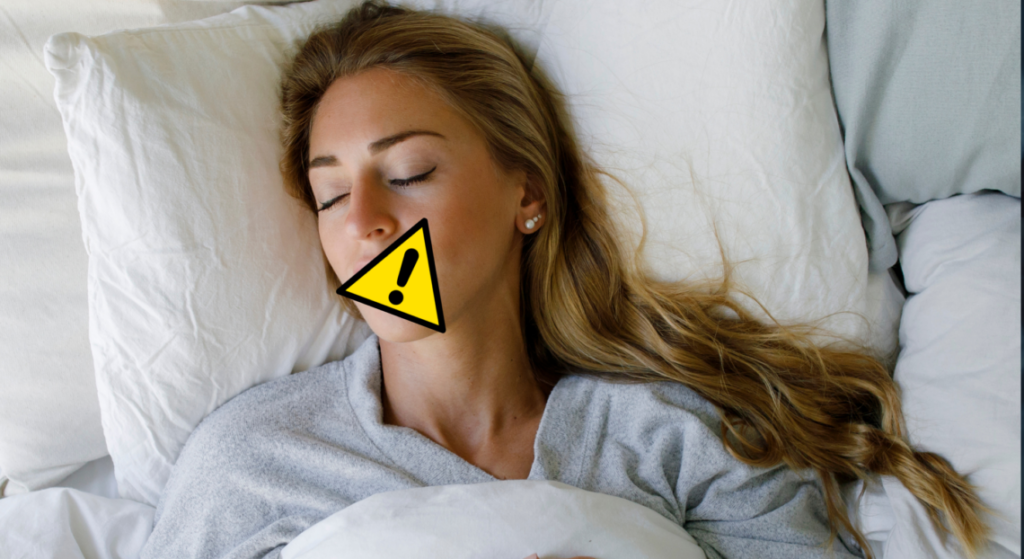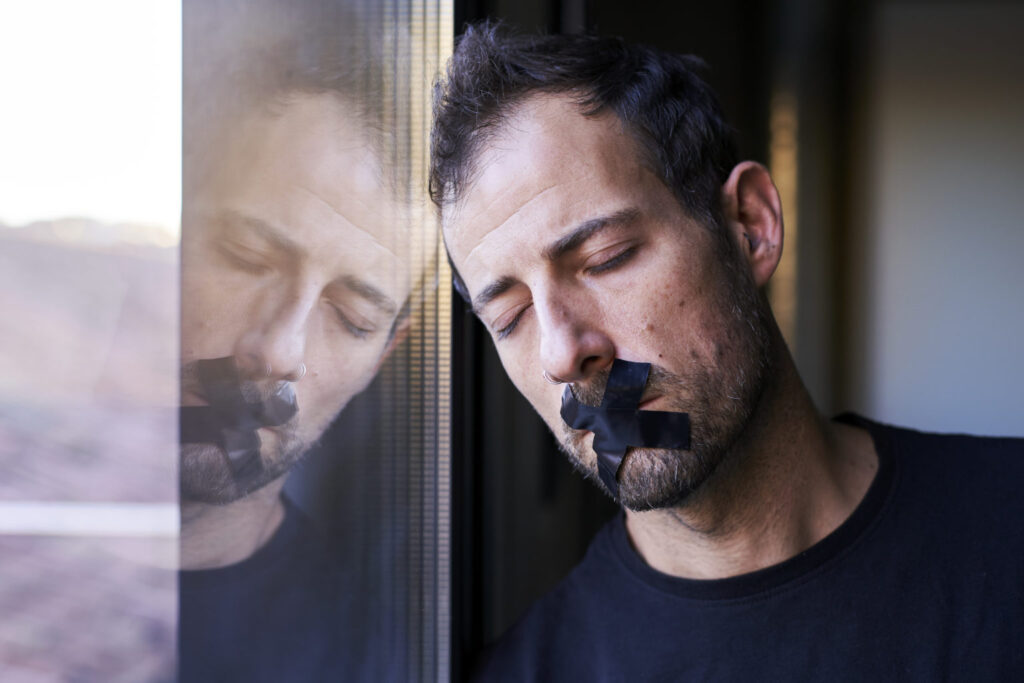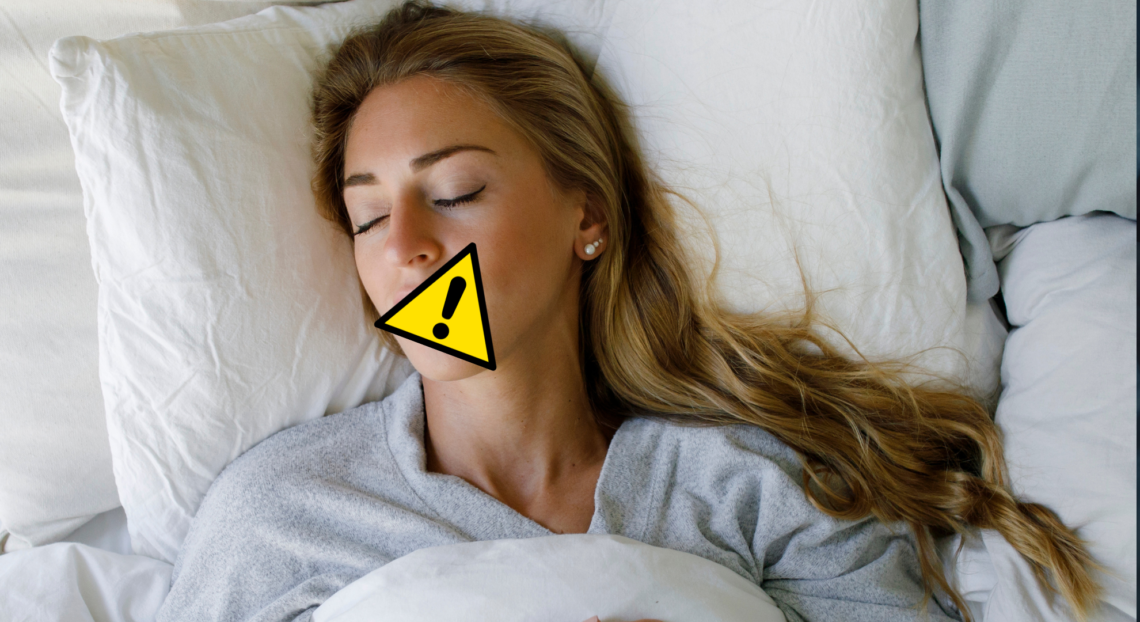
A hack that has been shared across social media known as ‘mouth-taping’ is claimed to stop people snoring and have several health benefits but a sleep expert has warned against using this method, saying that it could be dangerous.
Social media is full of hints and tips that are supposedly designed to improve everything from our cleaning routines to our eating habits but such hacks can potentially be anecdotal in nature and may not be as beneficial as they claim to be.
The viral hack that claims to stop you snoring
The practice of mouth-taping is fairly self-explanatory and involves using hypo-allergenic or microporous tape to cover your mouth while you sleep at night.
It’s not a new method as studies into sleep apnea and asthma from 2015 and 2009 involved taping the mouths of participants to trial the effects of the practice.
However, the method’s popularity has skyrocketed in recent years after it became a viral trend on social media sites like TikTok and Instagram.
On TikTok alone, videos under the hashtag #mouthtaping have earned more than 211 million views at the time of writing.
It is claimed that taping up one’s mouth can help combat a variety of problems including snoring, poor sleep and fatigue, concentration issues, bad breath, and a dry mouth leading to excessive thirst at night.
Some of these are listed as apparent benefits in the video below, where a young woman talks about the practice of mouth-taping, which has earned more than 4.3 million views.
Sleep expert warns against hack
To find out more about the mouth-taping trend and whether it’s beneficial and safe to do, The Focus spoke with Olivia Arezzolo, a leading sleep expert, keynote speaker and author.
“This method is definitely not recommended,” she explained. “It could lead to suffocation if things go wrong – and there are alternatives.”
“For snoring, one of the best techniques is to wear a mandibular adjustment device – an anti-snoring mouthguard,” she added. “It’s discrete, pain-free and can provide instant relief from loud snoring.”
Unlike covering the mouth with tape, a mandibular adjustment device is “designed to hold the lower jaw in an advanced position to prevent the tongue collapsing into the throat,” Arezzolo continued while recommending a product from SnoreMD.
One of the apparent benefits of mouth-taping is to combat sleep apnea, a condition where your breathing stops and starts while you sleep.
However, in this instance, Arezzolo advised “seeking out a GP to discuss treatment options such as CPAP (continuous positive airway pressure machine). This is highly recommended, given the effectivity of CPAP is upwards of 70%.”
In addition to Arezzolo’s comments, Sleep Foundation also advised caution around mouth-taping as the benefits of the practice are “mostly anecdotal, since only a few studies have analyzed this trend.”
The organization also warned that potential side effects of mouth-taping could include difficulty breathing, skin irritation, and anxiety.
Sleep Foundation also advised that if you’re considering mouth-taping, you should speak to a doctor before trying it.

What to do instead
Sleep Foundation has several alternative methods to help combat snoring that don’t involve taping your mouth.
The first is side sleeping and there have been decades of research that have found that sleeping on your side rather than your back can aid in not only snoring but also obstructive sleep apnea.
Nasal strips could also be a less obstructive method as they’re designed to expand the nasal passages and encourage nose breathing without the need to cover the mouth with tape, although the effectiveness of this practice has often been mixed when studied.
One of the claimed benefits of mouth-taping is to aid in oral hygiene and cure bad breath. However, Sleep Foundation recommends a simple method to combat this and it’s to practice good oral hygiene, with regular tooth brushing, flossing, tongue cleaning and gargling mouthwash.
And finally, another perceived benefit of taping one’s mouth is that it supposedly improves sleep quality.
Instead, it is recommended by Sleep Foundation that you improve your sleep hygiene by going to sleep and waking up at the same time each day, sleeping in a dark and quiet room, avoiding looking at screens before sleep, avoiding alcohol and caffeine before bed and exercising regularly.
Originally featured on The Focus

+ show Comments
- Hide Comments
add a comment